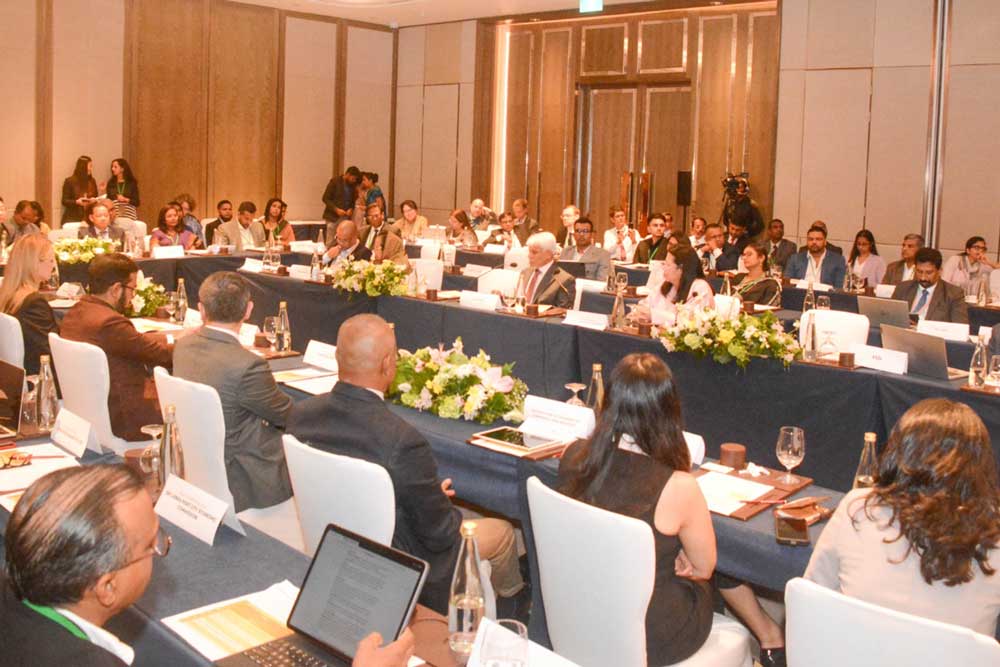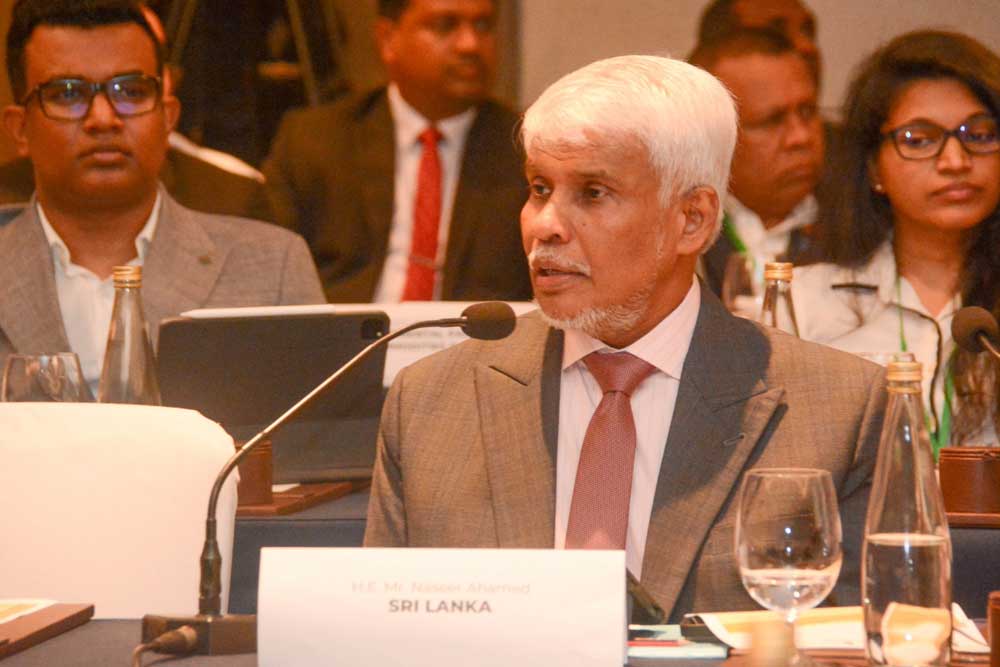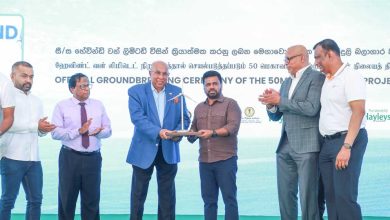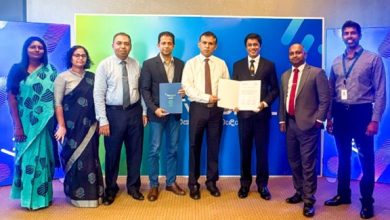Second Session of United Nations Science-Policy-Business Forum on Environment Addresses Environmental Sustainability in Asia-Pacific Region
- Collaborative Efforts Aim to Future-Proof Environment, Society, and Economy in Asia-Pacific
- Sri Lanka's Bold Climate Plan Sets a New Standard for Green Investment in the Region
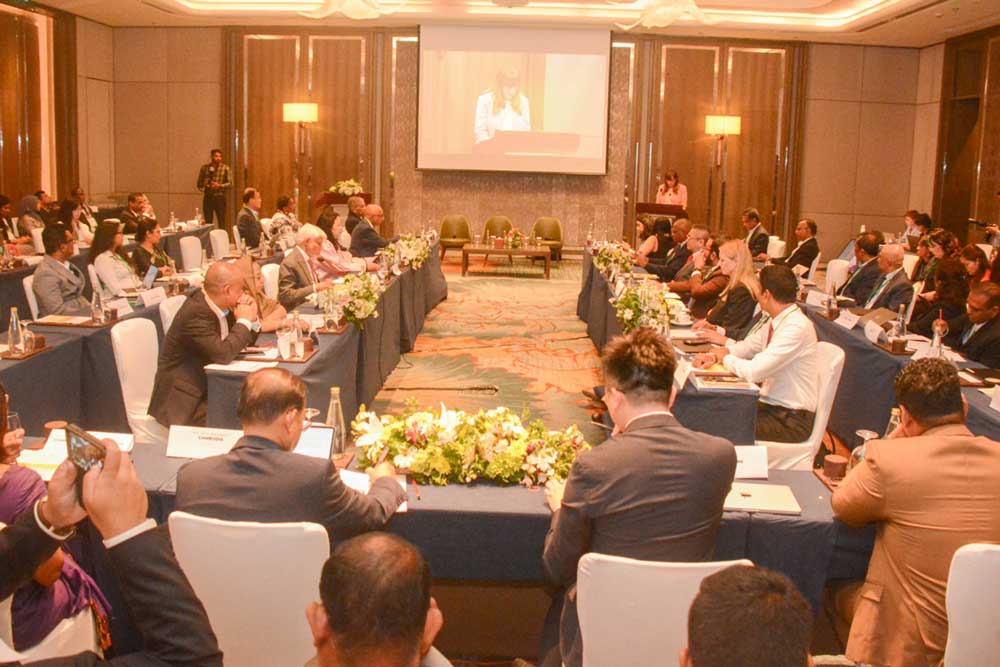
The second session of the United Nations Science-Policy-Business Forum on the Environment for the Asia-Pacific Region took place on October 3rd at the Shangri La, Colombo. The event commenced with an opening address by the Hon Minister of Environment, Naseer Ahamed. The focal point of the discussion centred around advancing Environmental Sustainability in the Asia-Pacific Region, underscoring the imperative of future-proofing economics, society, and the environment.
Minister Ahamed made a significant announcement during his address, stating, "Sri Lanka's President Ranil Wickremasinghe has unveiled the Climate Prosperity Plan at COP 27, with a strong focus on renewable energy generation to propel the country towards a green economy. This groundbreaking climate investment plan is the first of its kind in Sri Lanka and charts a course to attract foreign investment, fostering economic growth, job creation, climate adaptation, and a reduction in greenhouse gas emissions. Under this roadmap, there is a total resource mobilization opportunity of USD 26.5 billion by 2030." Minister Ahamed called upon businesses and individuals alike to collaborate towards achieving this milestone.
He highlighted that the overarching objectives encompass addressing climate change, adhering to the Paris Agreement, engaging in UNFCCC negotiations, safeguarding the future of nature and biodiversity, and fortifying disaster risk reduction under the Sendai Framework, all within the context of sustainability and the Sustainable Development Goals.
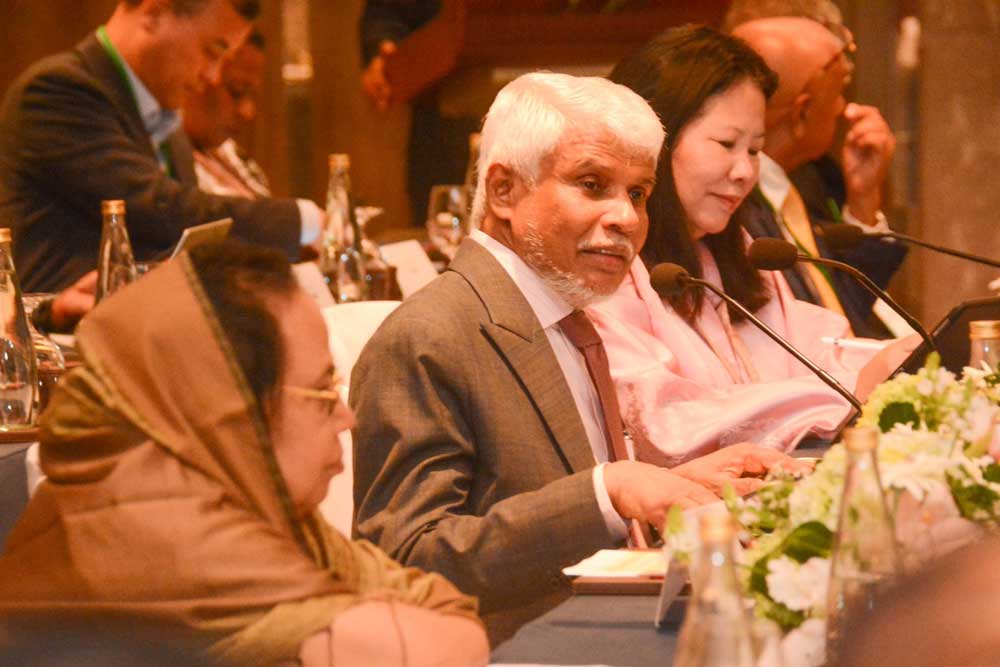
Minister Ahamed emphasized, "Today, we confront escalating climate shocks that impact the livelihoods, food security, and health of millions of people. Concurrently, the Asia-Pacific region accounts for an increasing share of annual global greenhouse gas emissions, which have risen from 35% in 2010 to 39% in 2019. On a per-capita basis, the Asia-Pacific region emits approximately 6 metric tons of CO2 equivalent annually."
He stressed the pressing need for an expeditious acceleration in decarbonization efforts within the region to align with the objectives of the 2015 Paris Agreement, contingent upon the region's ability to shift from carbon-intensive growth to low-carbon development.
Throughout the session, it was evident that countries across the Asia-Pacific region have committed to Nationally Determined Contributions (NDCs), with some nations updating their initial NDCs. Minister Ahamed concluded by highlighting Sri Lanka's commitment as a developing nation to sustainable economic growth, with a vision for a greener future as evidenced by ambitious policies like the Net Zero 2050 Road Map and the National Environment Policy.

